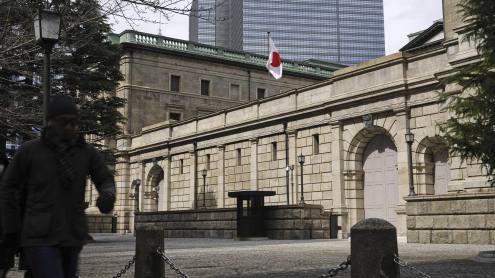They have waited for years, but they may have to wait a while longer yet. South Korean investors, armed with cash but fearful of the volatile markets, have long been on a watch for promising investment projects that guarantee high returns. But such golden opportunities have been scarce, and return on investment, if any, has been meagre.
Worse still, things are not expected to pick up any time soon. Continued economic uncertainties in South Korea, coupled with political instability and a stand-off over North Korea’s nuclear weapons programme, will most likely keep South Korea’s financial market vulnerable. In short, money has nowhere to go in Korea.
But, with an estimated Won380,000bn ($328bn) of idle cash stashed away in the country, investors will likely continue to chase after safe-haven investments. Many are desperately looking for alternative projects that will boost returns and make up for some of their past losses.
Meanwhile, commercial lenders and other institutional investors, which notoriously lack viable investment alternatives, are struggling to handle the flood of money pouring into their accounts.
Looking for alternatives
One recent incident vividly illustrated just how much cash South Koreans are hoarding up in their coffers. When 770 new apartment rooms in central Seoul were put on sale in March, thousands of hopeful buyers forked out their money in a minute. The funds put out on the table during the two-day period added up to Won7000bn. This was the largest-ever pooling of money in a single investment case, and just Won2000bn less than total customer deposits at securities firms in the two-day span.
“It is an embarrassing facet of the riches in South Korea,” comments Shin Dong-jun, a fixed income analyst at Korea Investment Trust Management and Securities in Seoul. “More and more people are turning to real estate investment, as there are no good investment alternatives at hand.”
According to the Bank of Korea, about Won381,000bn was just “floating” around in the nation’s financial system as of the end of February, just waiting for a way out. This amount represents a 48% ratio of total funds held by all of South Korea’s lenders and makes up roughly 52% of the Won721,000bn GDP in 2002.
The chief factors that are keeping the South Korean economy swimming in such a sea of cash include record-low interest rates, currently standing at 3.7%, and government economic stimulus measures.
The latest data from the Finance Ministry shows that state bonds outstanding came to Won94,000bn as of March, up by Won13,000bn from December of last year, as the South Korean government spent a large amount of money to boost domestic demand. The South Korean government is front-loading budget spending, and it is unlikely that the Bank of Korea will increase its rates this year.
So, what to do with this big pile of cash? “Wait and see” appears to be the only option open to investors at the moment, although they are restless. Appealing investment opportunities are still as rare as they have been.
For example, the real estate investment boom, which enthralled many Koreans over the past several years, took a pause, as the government went all out to pull down or stabilise housing prices.
Foreign domination
Volatile equity markets are also not tempting the cash-armed investors, although they have generated handsome returns over the past several months. Buoyed by a surge in corporate profitability and gradual economic recovery, Kospi, the country’s main stock index, gained 25% from the start of last year. But the fact is, South Korean equity markets are more or less controlled by foreign investors, and there is little room for locals to make any decent profit.
In addition, institutional investors such as banks, insurers and pension funds – all of which are widely expected to be major buyers on the equity markets – are not actively involved in portfolio investments due to strict risk management disciplines. This means that any long-term demand for equity markets is weak and fragile.
Just to name one instance, local insurers’ exposure to equity markets is estimated at below 5% of their assets of Won180,000bn under management, according to the Korea Life Insurance Association.
Lingering economic uncertainties, political instability stemming from the North Korean nuclear crisis and the recent controversy involving the impeachment of the South Korean president, do not guarantee a further gain.
Rock bottom rates
Furthermore, interest rates on bank deposits, viewed as the safest haven by investors, are at rock-bottom levels, as local banks repeatedly slashed them amid worsening business conditions.
Desperate to keep more money from rushing into their banks and in an effort to move in tandem with falling treasury yields, some banks cut interest rates on deposits in March for the first time this year.
Deposits at seven major commercial banks fell by Won9000bn due to record-low interest rates on bank deposits in March.
About Won10,000bn flowed into investment trust companies in March. What is noteworthy is that investors poured Won6000bn into money market funds that invest in short-term debt obligations such as Treasury bills, certificates of deposit and commercial paper.
“As low interest rates continue, investors are desperate to raise return on their investments even by a little. That’s why investors are rushing to us,” says Chang Neung-won, senior official at Daehan Investment Trust Management & Securities.
Yet Lee Byung-yun, a researcher at the Korea Institute of Finance, says it will not be easy to find investment alternatives. He predicts: “Volatility in the financial markets may get more severe down the road, as excess floating liquidity on the market that fails to find appropriate investment outlets are the leading cause of sharp fluctuations in the financial markets.”
Financial experts provide further evidence for the lack of appropriate investment vehicles for companies. Businesses, banks’ long-standing and traditional clients, are not borrowing any more money. Rather, companies awash with ample cash, cut their debts, holding back investments amid economic and political uncertainties.
Data from the Korea Stock Exchange show that listed firms had a total of Won19,000bn in cash and cash equivalents as of the end of December, up significantly from Won15,000bn a year earlier. On the other hand, the debt-to-equity ratio at publicly traded companies that closed their books in December stood at a record-low level of 99.2%.
“Companies are paying back debts as they don’t really know what to do with their big heap of money,” explains Kim Young-ik, a senior analyst at Daishin Securities in Seoul.
Arguably, South Korean commercial lenders are finding themselves struggling in an extremely difficult business environment: they have to grapple with low yields amid record-low interest rates as well as guard against risk arising from loans extended to households.
Bloated deposit sheets
In retrospect, since the financial distress of late 1997, the books of many of the survivors of financial restructuring have been encumbered with excessive deposits, partly because of their strategic moves to grow in size.
Total bank deposits, despite falling slightly last year, are still growing steadily. Bank deposits increased by Won41,000bn last year, compared with an Won87,000bn gain in 2002 and a Won61,000bn gain in 2001.
Until 2002 at least, banks had managed to steer through the deluge of deposits by pumping money into households, and they made record profits largely through shedding bad debts and the prospect of strong loan-backed economic growth.
Without viable vehicles in which to park the flood of deposits, however, banks had no choice but to increase household loans. More recently, the growth of loans, which had been rising fast over the past couple of years, is showing signs of fatigue due to strict policies on loans. Loans by banks to households increased by Won38,000bn last year, compared with a Won65,000bn increase in 2002 and a Won50,000bn increase in 2001.
Real estate collapse
In addition, a dramatic rise in risk associated with soaring defaults on credit card portfolios and on mortgages made banks reluctant to extend further retail loans. The property bubble is also being pricked, after great activities in speculative buying last year.
Some money found a home in treasuries with their low interest rates. Government debts held by commercial banks, including monetary stabilisation bonds, increased to Won75,000bn as of the end of June 2002, rising from Won74,000bn at the end of 2001 and Won71,000bn at the end of 2000, according to the Financial Supervisory Service.
Consequently, the portion of government bonds against total assets, including monetary stabilisation bonds, jumped to 13.5% in 2001 from 12.9% in 1998.
Yet the yields on government debts have continued to fall since late last year, and sticking to them has the effect of further pushing down yields. The yields on three-year government bonds stood at 4.4% early April, a drastic drop from a 5.01% in early December last year, as institutional investors already bulging with a heap of Treasuries competed to snatch up more government debts amid short supplies.
The problem is that bond yields may drastically increase at any time, as economic recovery gathers momentum, dealing a blow to government-debt holders who snatched up them at high prices.











